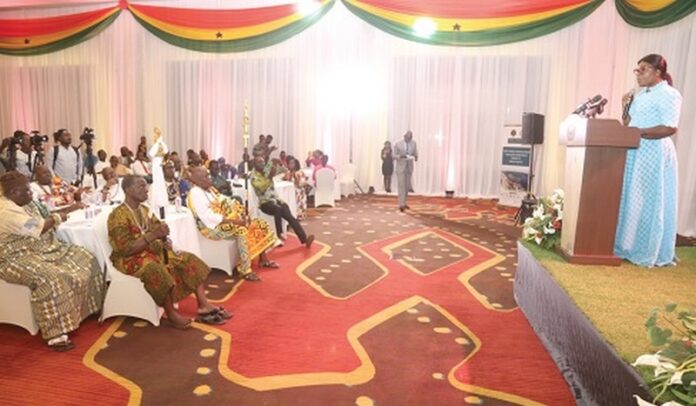The West Africa Coastal Areas Resilience Investment Project, Ghana (WACA RESIP 2) has been launched in Accra.
It is aimed at building resilience along the country’s coastline, as well as restoring and protecting its critical coastal ecosystems.
The $155 million project, which is being funded by the World Bank, will be implemented at the Korle Lagoon, Densu Basin and the Keta Lagoon to address perennial challenges such as flooding, pollution and erosion.
Out of the funds, $150 million is a credit facility from the International Development Association (IDA), while $5-million is a grant from PROBLUE, a multi-donor trust fund administered by the World Bank.
The project is being spearheaded by the Ministry of Environment, Science, Technology and Innovation (MESTI) and other partner ministries, departments and agencies (MDAs).
The Minister of MESTI, Ophelia Mensah Hayford, who did the launch, also unveiled the project steering and technical committees.
Members of the committees were drawn from MDAs and stakeholders such as the Ministries of Lands and Natural Resources, Finance, Works and Housing, as well as the Environmental Protection Agency, Ghana Hydrological Authority, traditional rulers, and representatives of persons with disabilities (PWDs).
Focus
The minister said that the project would focus on coastal erosion and flooding control works, pollution control, ecosystem management and restoration activities, while social sub-projects would also be developed to support coastal communities.
She explained that in the Korle Lagoon, the project would complement ongoing works by the Greater Accra Resilient and Integrated Development (GARID) Project by constructing a jetty at the lagoon outlet to prevent sediment accumulation and also stabilise the lagoon’s embankments.
Also, she said that in the Densu Delta, the project would support improved spatial planning and enforcement capacities of existing regulations in protected areas to minimise further encroachment into the delta ecosystem, support the vegetation of buffer areas in the upstream waterways and within the Delta to increase absorption capacity.
In the Keta Lagoon complex, the minister said the project would primarily focus on reforestation and protection, “specifically in mangrove areas threatened by saline intrusion due to coastal erosion and sea-level rise.
She said that it would further address erosion issues in communities, with interventions at sites to be determined based on technical studies and extensive stakeholder engagement.
The minister added that the PROBLUE support under WACA would advance the country’s blue economy by enabling the development of a sustainable oceans plan and also target marine spatial plans, among other initiatives.
Rationale
The WACA RESIP 2 Programme Leader at the World Bank, Naila Ahmed, said the investment in the project was in recognition of the adverse effects of climate crisis in coastal communities.
He said the global climate crisis had a debilitating impact on livelihoods and the lives of residents of coastal communities.
For his part, the Chief Director of the Ministry of Lands and Natural Resources, Prof. Patrick Agbesinyale, described the project as a major step towards restoring the country’s coastal resources.
Background
The rate of coastal erosion in Ghana ranges between two and five metres per annum, with some locations experiencing up to 17 metres of erosion each year.
This is further compounded by frequent flooding due to high storm tides which result from rising sea levels induced by climate change.
In Ghana, temperatures have risen by approximately 1°C since the 1960s and are projected to increase by between 1°C and 3°C by mid-century, and between 2.3°C and 5.3°C by the end of the century.
Heavy rainfall events are also expected to increase and are likely to result in flooding, flash floods and riverbank erosion. Ghana’s flood exposure is projected to bring about a US$160 million loss annually.
Source: Graphic.com.gh


